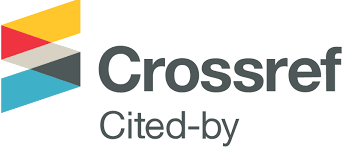Extended Abstract: Household consumption contributes to more than 60% of global greenhouse gas emissions (Ivanova et al., 2016). Therefore, governments and NGOs around the world need to promote and assist consumers in choosing climate-friendly actions with the greatest potential to reduce carbon emissions (United Nations, 1998). Although tools such as the United Nations carbon footprint calculator suggest climate-friendly actions, they do not consider the subjective utility (i.e., benefits and costs) of these actions, such as money and time, which may vary depending on consumer segments. If consumers are unable to properly assess the utility of these actions due to complexity, they may engage in less climate-friendly behavior or choose less effective climate-friendly actions. Therefore, it is important to understand different consumer segments across countries, their subjective utility of the most impactful climate-friendly actions, and their characteristics. This information provides international policymakers and NGOs with a foundation for targeting the right people with the right strategies.
Existing consumer sustainability studies have segmented the market for green products (e.g.,Balderjahn, Pevera, Seegebarth, Wiedemann, & Weber , 2018 ;Ross & Milne 2020 ;Sarti, Darnall, & Testa, 2018 ) and selected climate-friendly actions (e.g.,Golob & Kronegger ,2019 ). However, no research has focused on the most impactful climate-friendly actions and investigated cross-country market segments based on consumers' subjective utility of these actions. Therefore, the goals of this research project are: (1) to identify cross-country market segments based on consumers' subjective utility of the climate-friendly actions with the biggest CO2 reduction potential, (2) to describe these segments in terms of socio-demographic, attitudinal, and behavioral variables, and (3) to identify variables that predict segment membership. This information is crucial for international policymakers and NGOs to promote segment-specific climate-friendly behavior with maximum effectiveness across multiple countries.
This research project conducted online surveys in Germany, Italy, and the United Kingdom, with a total sample of 992 consumers aged 18 and over, including 382 from Germany, 315 from the United Kingdom, and 295 from Italy. A mixture modeling approach is used to segment consumers based on their subjective utility of 15 key climate-friendly actions (e.g., avoiding flights) identified in the study by Antony et al. (2020), while considering the predictive impact of covariates on segment membership. Overall utilities for each action will be determined based on multi-attribute utility theory (Dyer, 2016), using the weighted linear additive preference function to aggregate consumers' importance weights of the attributes relevant when deciding on climate-friendly actions (i.e., convenience, money, health, self-fulfillment, social belonging, social-ecological impact) and their single-attribute evaluations of the climate-friendly actions. The attributes are obtained through semi-standardized interviews using a free elicitation technique. Models are estimated for two to ten segments, and the best solution will be determined based on the sample size adjusted Bayesian information criterion (ssBIC) and segment solution interpretability. Consumers were assigned to segments based on their posterior probabilities of segment membership.
Preliminary results suggest the existence of six consumer segments (i.e., undecided, mobility ecos, pure ecos, egoists, savers, health & energy-saving) with different overall levels of utility, utility profiles related to the climate-friendly actions, and significant differences in attitudinal (e.g., attitude towards climate protection) and behavioral covariates (e.g., use of means of transportation). These findings will enable international policymakers and NGOs to target each consumer segment with the most impactful climate-friendly actions, taking into consideration subjective utility, which increases the probability of consumer adoption of these actions.
Funding statement
The author(s) received no financial support for the research, authorship, and/or publication of this article.
Conflict of interest
The author(s) declared no potential conflicts of interest with respect to the research, authorship, and/or publication of this article.





